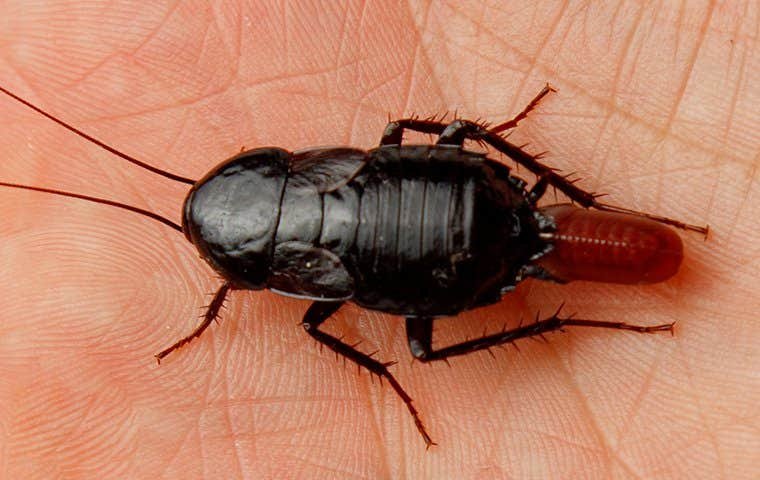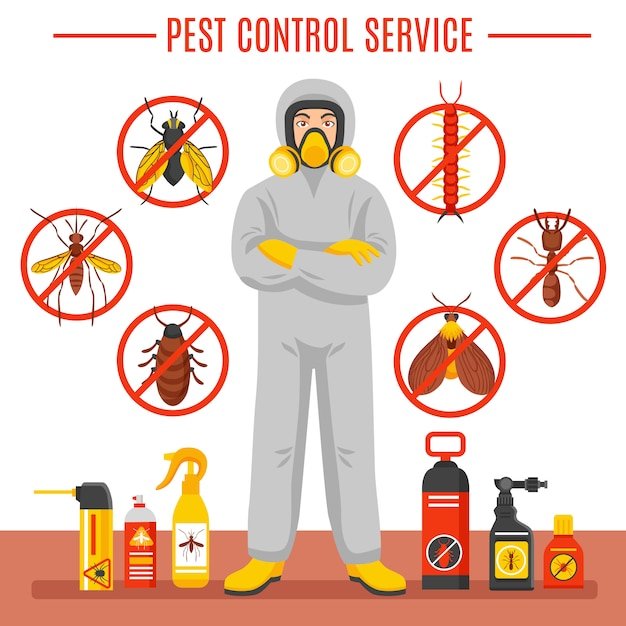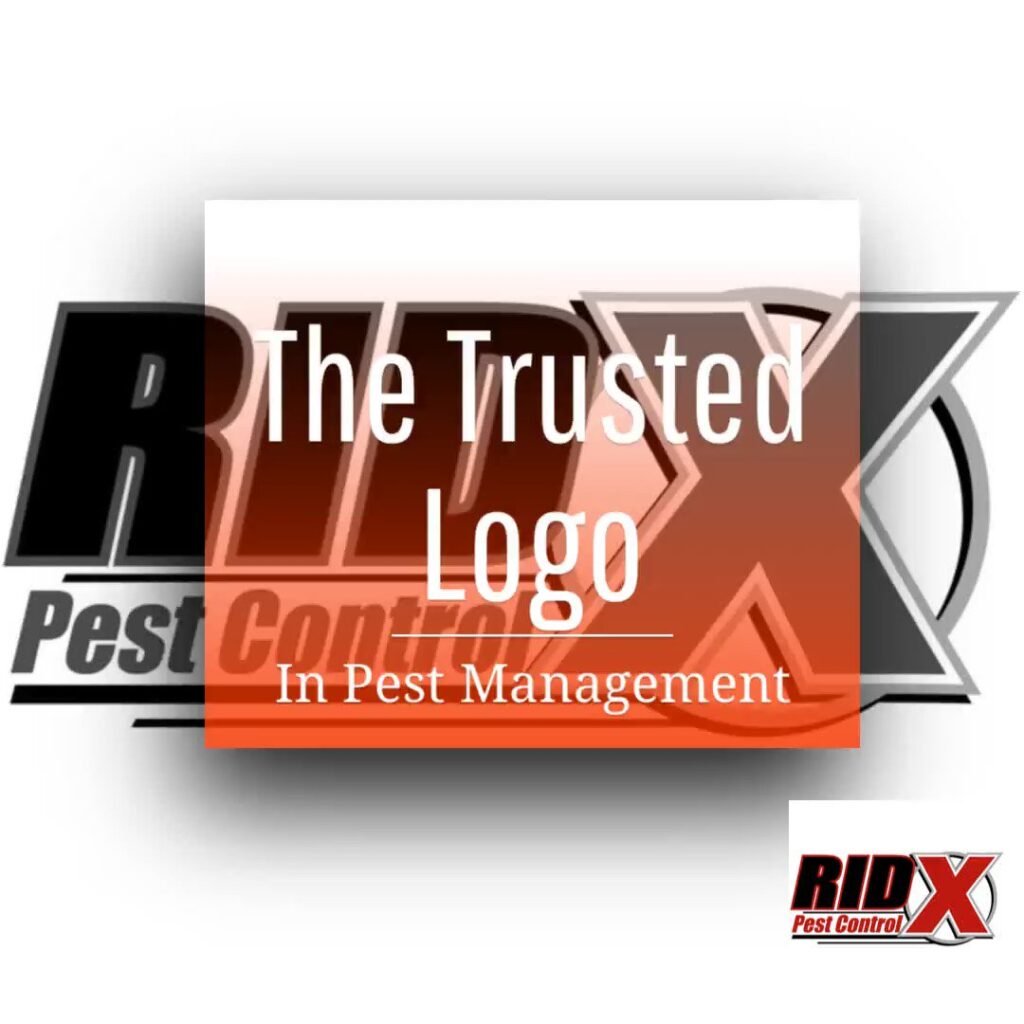Are you tired of dealing with pesky pests in your rental property? Look no further! In this article, we will explore some effective pest control measures that you, as a tenant, can take to keep those unwanted critters at bay. By implementing these simple yet powerful techniques, you can ensure a pest-free environment and enjoy a comfortable living space. So, let’s get started and bid those creepy crawlies goodbye!
Prevention is Key
Preventing pests from infesting your property is always preferable to dealing with an infestation. By following these simple preventive measures, you can significantly reduce the risk of pests invading your living space.
Keep the property clean
Maintaining a clean and tidy home is the first line of defense against pests. Regularly sweeping, vacuuming, and mopping floors will eliminate food crumbs or spills that can attract pests. Be sure to pay attention to often overlooked areas such as under furniture and appliances. Additionally, cleaning your kitchen after each meal and promptly emptying the trash will deter pests from finding a reliable food source.
Seal all cracks and crevices
Pests can enter your home through even the tiniest cracks and crevices. Take the time to inspect your property for any openings in walls, windows, doors, or foundation. Use caulk or weatherstripping to seal gaps, ensuring that pests have no easy entry points into your living space. Not only will this prevent infestations, but it will also help in reducing drafts and decreasing your energy bills.
Properly dispose of garbage
Leaving garbage exposed or failing to dispose of it properly can attract a wide range of pests, such as rodents and cockroaches. Make sure to keep your trash cans tightly sealed and regularly dispose of garbage in outdoor bins. Additionally, cleaning your indoor trash cans regularly will help eliminate any lingering odors that may attract pests.
Maintain a tidy yard and garden
Your yard and garden also play a significant role in pest prevention. Keep vegetation well-trimmed and remove any dead leaves or debris that could serve as hiding spots for pests. Additionally, regularly inspect and clean out gutters to prevent stagnant water, which can attract mosquitoes and other pests. By maintaining a tidy outdoor space, you reduce the likelihood of pests migrating into your home.
Understanding Common Pests
To effectively prevent and control pests, it’s crucial to understand the common pests in your area, their habits, behavior, and signs of infestation. This knowledge will enable you to detect and address pest issues before they become full-blown infestations.
Identify common pests in your area
Depending on your geographical location, you may encounter different types of pests. Research the common pests in your region, such as ants, cockroaches, rodents, or bed bugs. Familiarize yourself with their appearances, sizes, and characteristics to better identify them if they invade your property.
Know their habits and behavior
Understanding the behavior of pests can help you predict their movements and take proactive measures. For example, knowing that mice tend to travel along walls can help you strategically place traps in these areas. Research the habits of pests, including their feeding patterns, nesting preferences, and reproduction cycles, to develop effective pest control strategies.
Recognize signs of an infestation
Early detection of a pest infestation is essential for quick and effective action. Educate yourself about the warning signs of different pests, such as droppings, gnaw marks, strange odors, or visible insects. By recognizing these signs, you can promptly report the issue to your landlord and prevent the problem from escalating.
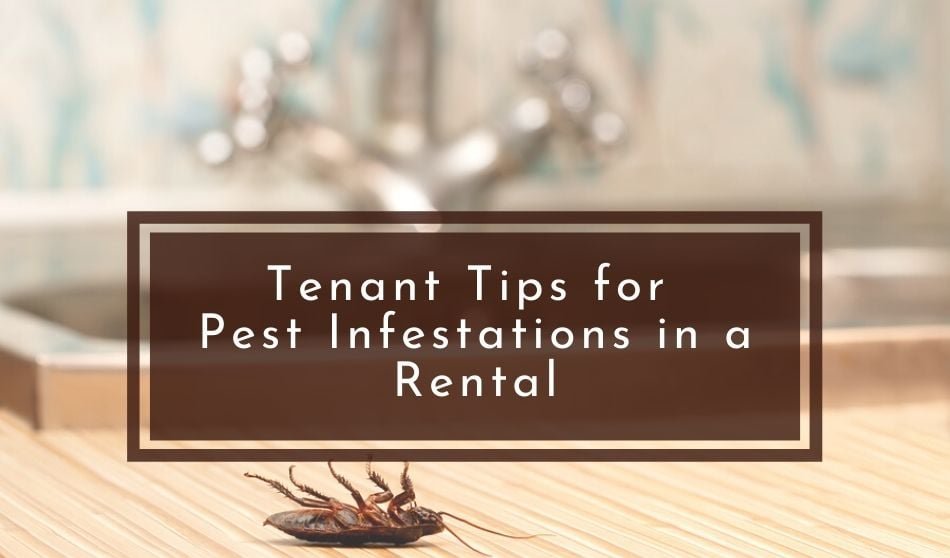

Communicating with the Landlord
When it comes to pest control, communication with your landlord or property manager is vital. Promptly reporting any signs of pests and discussing responsibility for pest control will ensure that the necessary actions are taken to address the issue.
Report any signs of pests immediately
If you notice any signs of pests, such as droppings, chewed wires, or insect sightings, it’s crucial to inform your landlord or property manager right away. Timely reporting will allow for prompt investigation and preventive measures to be taken.
Request professional pest inspection
In situations where you suspect or have confirmed a pest infestation, it is essential to request a professional pest inspection. Professional pest control companies have the experience and knowledge to identify the scope of the infestation and recommend appropriate treatment measures. Discuss this option with your landlord and emphasize the importance of timely intervention.
Discuss responsibility for pest control
Clearly establishing responsibilities for pest control between you and your landlord is essential. Review your lease agreement and discuss with your landlord who is responsible for the cost and coordination of pest control services. It’s in everyone’s best interest to work together to prevent and address pest issues effectively.
Non-Chemical Pest Control Methods
Using non-chemical methods is a great approach to pest control as it minimizes the use of harsh chemical pesticides, which can have harmful effects on humans and the environment. These methods are often highly effective in addressing minor pest issues.
Use traps and baits
Traps and baits are a safe and effective way to control pests without the use of chemicals. They are particularly useful for catching rodents, cockroaches, and even some insects. Place traps or baits in strategic locations where you have observed pest activity, such as along baseboards, beneath sinks, or in dark corners.
Remove food and water sources
Pests are attracted to readily available food and water sources in your home. By eliminating these attractants, you can discourage pests from entering or staying in your living space. Keep all food stored in sealed containers, promptly fix any leaks or dripping faucets, and avoid leaving standing water in sinks or bowls.
Maintain proper ventilation
Proper ventilation is crucial in preventing and controlling pests. Good airflow helps reduce moisture levels, preventing conditions that enable pests like mold and mildew to thrive. Ensure your property has adequate ventilation in areas prone to moisture, such as bathrooms, kitchens, and basements.
Employ physical barriers
Creating physical barriers can help prevent pests from accessing your living space. Install screens on doors and windows to keep flies, mosquitoes, and other insects out. Use weatherstripping or door sweeps to seal gaps beneath doors. Additionally, consider installing mesh netting or wire fences around the perimeter of your property to deter larger pests like rodents and raccoons.
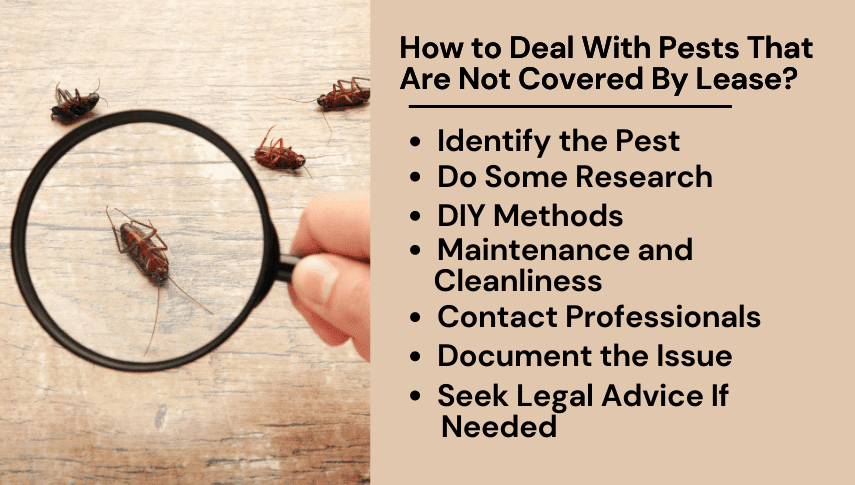

Chemical Pest Control Options
In some cases, the use of chemical pesticides may be necessary to address severe pest infestations. When considering chemical pest control options, it’s important to prioritize the use of environmentally-friendly products and follow safety guidelines.
Consult with a professional exterminator
When facing a significant pest infestation, consulting with a professional exterminator is highly recommended. They have the expertise to assess the infestation accurately and choose the most effective treatment options. A professional exterminator can guide you on the appropriate use of chemical pesticides and ensure their safe application.
Choose environmentally-friendly pesticides
If chemical pesticides are necessary, opt for environmentally-friendly products. Look for pesticides that are labeled as low toxicity and contain natural ingredients. These products are designed to minimize harm to humans, pets, and the environment while targeting pests effectively.
Properly apply pesticides
When using chemical pesticides, it’s crucial to follow the instructions provided by the manufacturer. Use the recommended quantity and apply the pesticide only to the specific areas infested by pests. Avoid exposing yourself, others, or any non-targeted organisms to the pesticides. Take necessary precautions, such as wearing protective clothing and keeping children and pets away from treated areas.
Follow safety guidelines
Safety should always be a top priority when using chemical pesticides. Keep in mind that these products can be toxic if not handled properly. Store pesticides in their original containers, away from food or beverages, and out of reach of children. Dispose of any empty pesticide containers following local regulations and recommendations.
Bed Bug Prevention and Treatment
Bed bugs are notorious pests that can cause discomfort and insomnia. To prevent and treat bed bug infestations, it’s crucial to be proactive and take the necessary precautions.
Regularly inspect bedding and furniture
Regularly inspect your bedding, including mattresses, box springs, and bed frames, for any signs of bed bug activity. Look for small reddish-brown stains on sheets or mattresses, tiny eggs, or live bed bugs. Pay close attention to crevices, seams, and tufts, as bed bugs often hide in these areas.
Wash and dry bedding on high heat
If you suspect or detect bed bugs, it’s important to wash all bedding, including sheets, pillowcases, blankets, and covers, on high heat. The high temperature will kill any bed bugs or eggs present. Be sure to dry the bedding thoroughly, also using high heat, as bed bugs cannot survive in extreme temperatures.
Cover mattresses and box springs
Invest in bed bug-proof mattress and box spring covers to prevent bed bugs from infesting or escaping these areas. These covers create a barrier that bed bugs cannot penetrate. Additionally, encasing your bedding will make future inspections easier, allowing for early detection if bed bugs do manage to enter your living space.
Seek professional help for severe infestations
For severe or persistent bed bug infestations, seeking professional help is crucial. Bed bugs are notoriously difficult to eliminate without professional intervention. A reputable pest control company will have the expertise and specialized treatments necessary to eradicate bed bugs effectively and prevent their return.
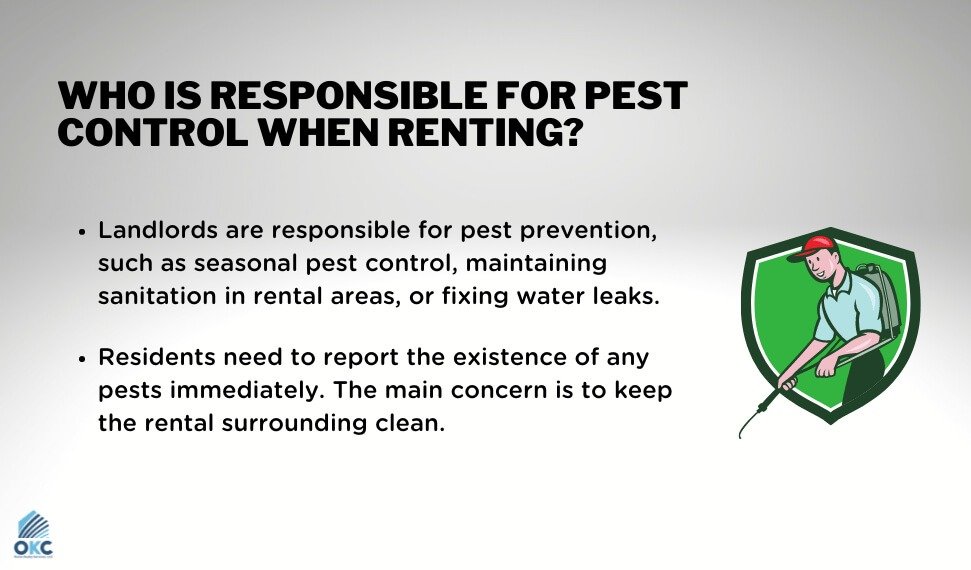

Rodent Control Measures
Rodents, such as mice and rats, are common pests that can cause significant damage to your property and pose health risks. Implementing effective rodent control measures will help protect your home and prevent these pests from infiltrating your living space.
Seal all gaps and cracks in walls
Rodents can squeeze through surprisingly small openings. Inspect your property thoroughly for any gaps or cracks in walls, floors, or the foundation. Seal these openings using materials such as caulk, steel wool, or expanding foam. By preventing rodents from entering your home, you minimize the chances of encountering an infestation.
Keep food in sealed containers
Rodents are attracted to easily accessible food sources. Store all food, including pantry items and pet food, in tightly sealed containers made of metal or glass. By depriving rodents of a reliable food source, you discourage them from entering and inhabiting your living space.
Set traps in strategic locations
Traps are an effective way to catch and eliminate rodents. Place them in strategic locations where you have observed rodent activity, such as along walls or near entry points. There are various types of traps available, including snap traps and humane live traps. Choose the one that suits your preferred approach and dispose of captured rodents according to local regulations.
Remove clutter and debris
Rodents thrive in cluttered and unkempt environments as it provides them with abundant hiding places and nesting material. Keep your property tidy by regularly cleaning and organizing. Remove unnecessary clutter, trim overgrown vegetation, and clear out any debris that could serve as rodent habitat.
Cockroach Extermination
Cockroaches are resilient pests that can quickly multiply and infest your home. Effective cockroach extermination requires a multifaceted approach that targets their food and water sources and limits their entry points into your living space.
Eliminate food and water sources
Cockroaches are attracted to food debris and water sources, making your kitchen a prime area for infestations. Always clean up after meals, promptly sweep up any crumbs, and regularly wipe down kitchen surfaces. Fix leaky pipes and faucets to eliminate excess moisture that cockroaches need to survive.
Fix leaky pipes and faucets
Leaky pipes and faucets not only create an ideal environment for cockroaches, but they may also attract other pests. Inspect your plumbing system regularly and promptly fix any leaks or water-related issues. By eliminating excess moisture, you discourage cockroaches and other pests from thriving in your home.
Use cockroach baits and gels
Cockroach baits and gels are effective tools for targeting and eliminating cockroach populations. Place baits in areas where cockroaches are likely to travel, such as along baseboards, under sinks, or behind appliances. These baits contain a slow-acting poison that roaches carry back to their nests, effectively wiping out the entire colony.
Consider professional fumigation
In severe cockroach infestations, professional fumigation may be necessary. Fumigation involves sealing your home and using chemical gases to eliminate cockroaches and their eggs. This method is highly effective but requires careful preparation and adherence to safety instructions provided by the fumigation professional.
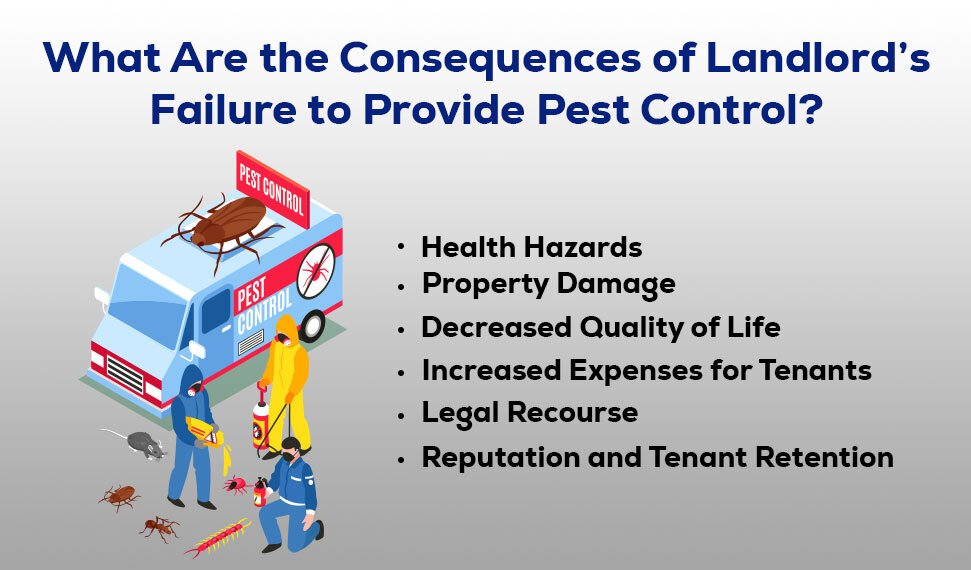

Ant Infestation Control
Ants can be persistent pests, invading your kitchen and compromising your food sources. Taking preventive measures and employing effective control methods will help you keep ants at bay.
Keep kitchen counters clean
Ants are attracted to food particles and spills on kitchen counters. Clean your counters regularly and wipe up any crumbs or spills immediately. Pay extra attention to areas where food is prepared and stored, ensuring that there are no food sources readily available for ants to find.
Seal entry points around windows and doors
Ants can find their way into your living space through tiny cracks and openings around windows and doors. Inspect these areas and seal any gaps or crevices using caulk or weatherstripping. By denying ants access to your home, you minimize the risk of infestation.
Use ant baits or natural deterrents
Ant baits are an effective method of controlling ant populations. These baits contain a slow-acting poison that ants consume and carry back to their colony, eventually eliminating the entire nest. Alternatively, you can use natural deterrents, such as vinegar or lemon juice, to create barriers or repel ants from entering your living space.
Control moisture levels
Some ant species are attracted to damp environments. Keep your home well-ventilated to control humidity levels and prevent areas prone to moisture buildup. Fix any plumbing leaks and address water-related issues promptly. By reducing moisture, you discourage ants from finding the conditions they need to thrive.
Flea and Tick Prevention
Fleas and ticks are common pests that can infest both your home and your pets. Taking preventive measures will help protect your household from these irritating and potentially harmful pests.
Regularly vacuum carpets and upholstery
Fleas and ticks can hide in carpets, upholstery, and pet bedding. Regularly vacuuming these areas, including cracks and crevices where pests may lurk, helps remove eggs and larvae. Dispose of the vacuum bag or empty the canister outside to prevent reinfestation.
Wash pet bedding frequently
Flea eggs and larvae often accumulate on pet bedding. Wash your pets’ bedding regularly using hot water to kill any pests that may be present. Be sure to dry the bedding thoroughly, using high heat if possible, as fleas and ticks cannot survive in extreme temperatures.
Treat pets with veterinarian-approved products
Consult your veterinarian for appropriate flea and tick control products for your pets. There are various options, such as spot-on treatments, oral medications, or flea collars. Regularly apply or administer these products according to the instructions provided to protect your pets from infestation.
Mow lawns and trim shrubs regularly
Fleas and ticks can hide in tall grass, shrubs, and leaf piles. Regularly mow your lawn, trim shrubs, and remove any excess vegetation to reduce suitable habitats for these pests. Additionally, consider applying nematodes, which are microscopic organisms that can feed on flea larvae and help control their population.
By implementing these preventive measures and employing effective pest control methods, you can help create a pest-free living environment. Remember the importance of communicating with your landlord or property manager and promptly reporting any signs of pests. Together, you can ensure a healthy and comfortable home for everyone.
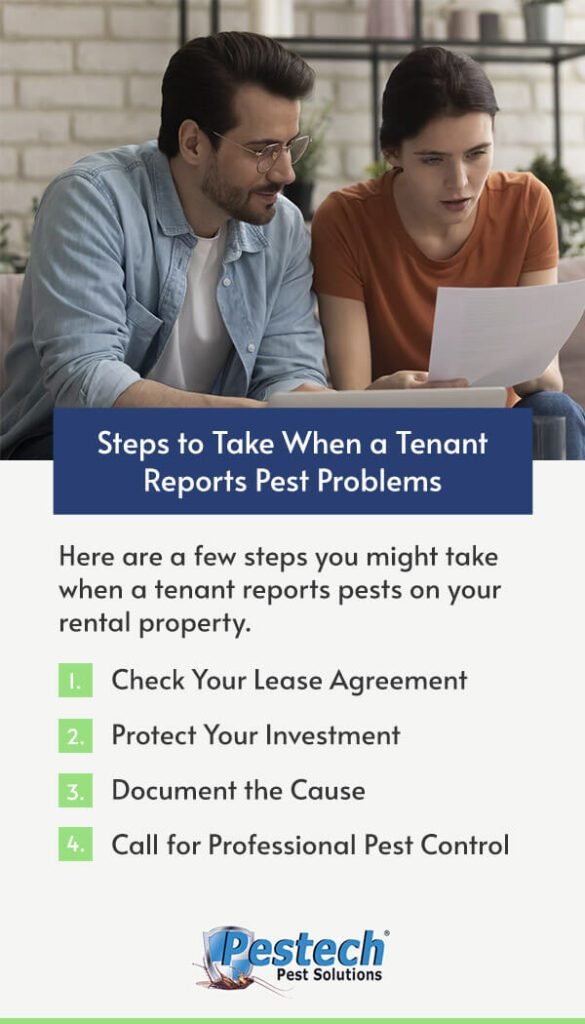

Your Expert in Animal Control and Extermination. Trust our experience for humane, effective pest management, protecting your property and ensuring peace of mind with Michael S.


